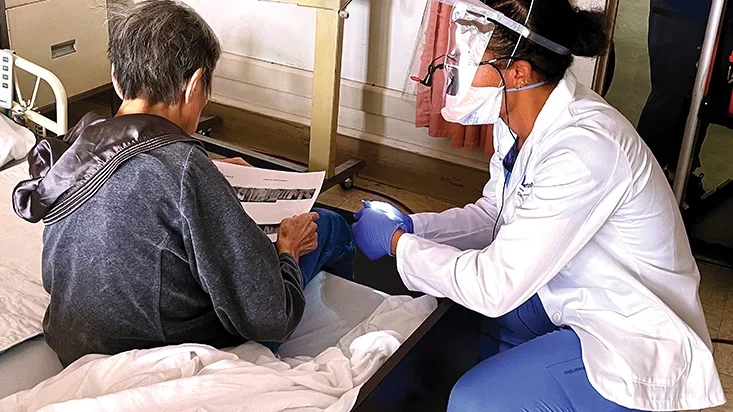Community-Based Clinical Education

UCLA's Community-Based Clinical Education (CBCE) program was implemented as a pilot program for a select group of students in March 2018 who completed a two-week community rotation. Since then, our current fourth-year dental students are each completing at least six weeks of rotations with two different practice models.
Over 36,000 patients in underserved communities have received almost 90,000 dental procedures through our program. CBCE has also made available some specialty services at select sites, including endodontics and oral surgery, to further increase access to care for vulnerable populations
23 Clinic Sites
Affiliated locations where our students rotate
36,000+ Patients
Have received more than 90,000 procedures
Mission Statement:
Our mission is to enhance our students’ education while increasing access to care for vulnerable populations through sustainable community service.
Vision Statement:
Our vision is to close the gaps in oral health access through the dissemination of a proven CBCE program template as the first Academic Dental Service Organization for productive, accountable and sustainable community outreach locally, nationally and internationally.
Core Values:
Congruent with UCLA Dentistry's Strategic Imperative 1 – Prepare our students to deliver person-centered care in an integrated health care delivery system
Enhance Education
We seek to develop and improve educational value through extramural clinical experiences to inspire trainees to develop attitudes and skills necessary for continued professional growth. Trainees gain real-world experiences in various dental practice models including Federally Qualified Health Centers, private offices, dental service organizations and mobile dentistry to enhance learning in patient engagement, practice management, team-based care delivery and humanistic culture.
Improve the Health of Vulnerable Populations
We strive to establish strong relationships with community champions with an unmet need to increase access to care for vulnerable populations through a multifaceted approach ultimately leading to an equitable workforce distribution through recruitment and retention, enhanced site operational efficiency and interprofessional care.